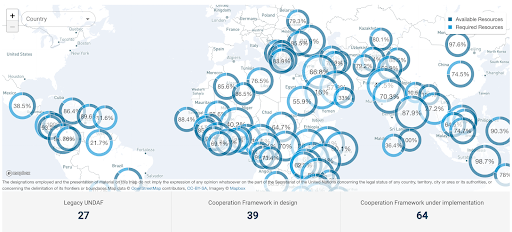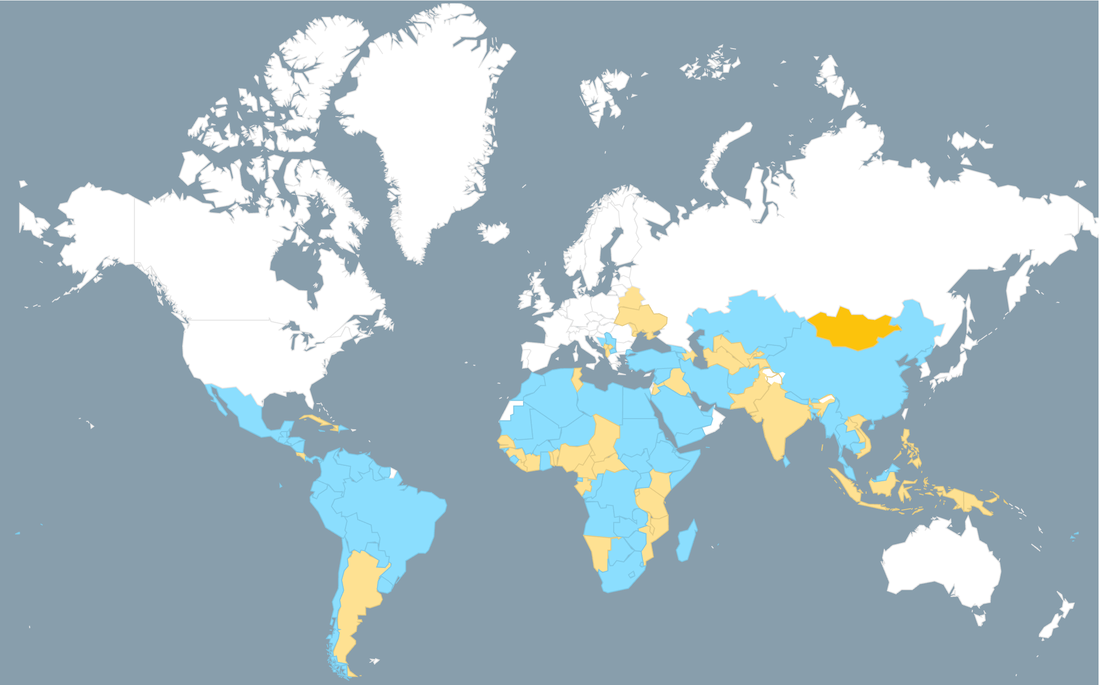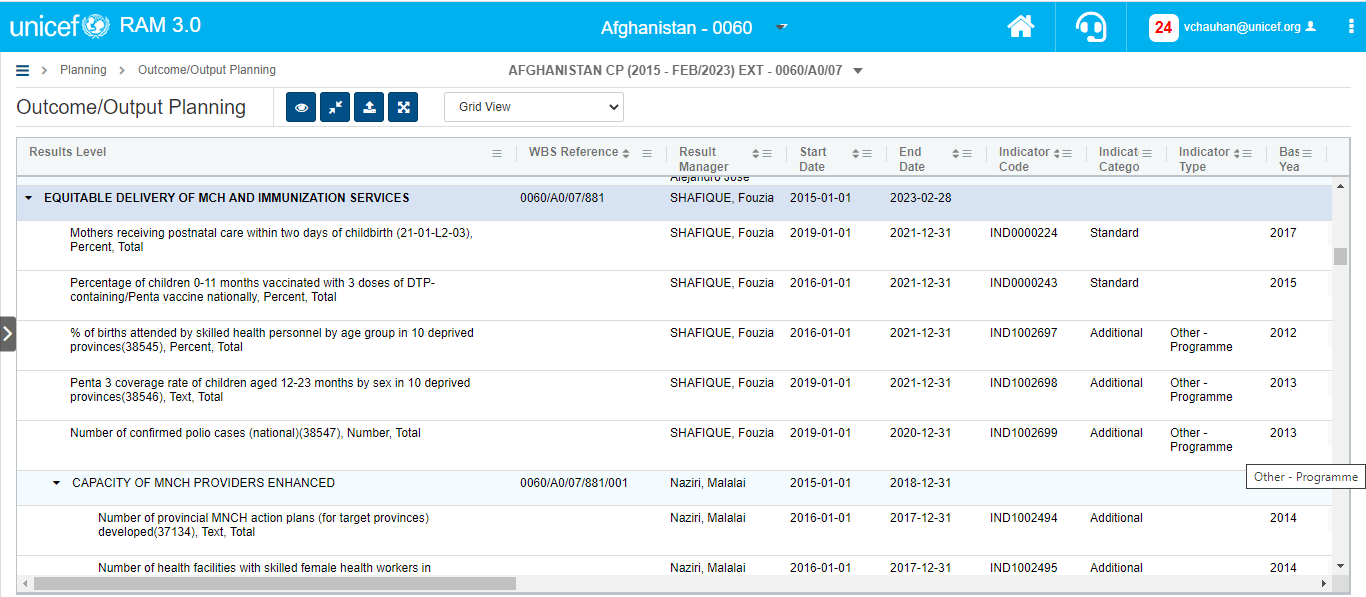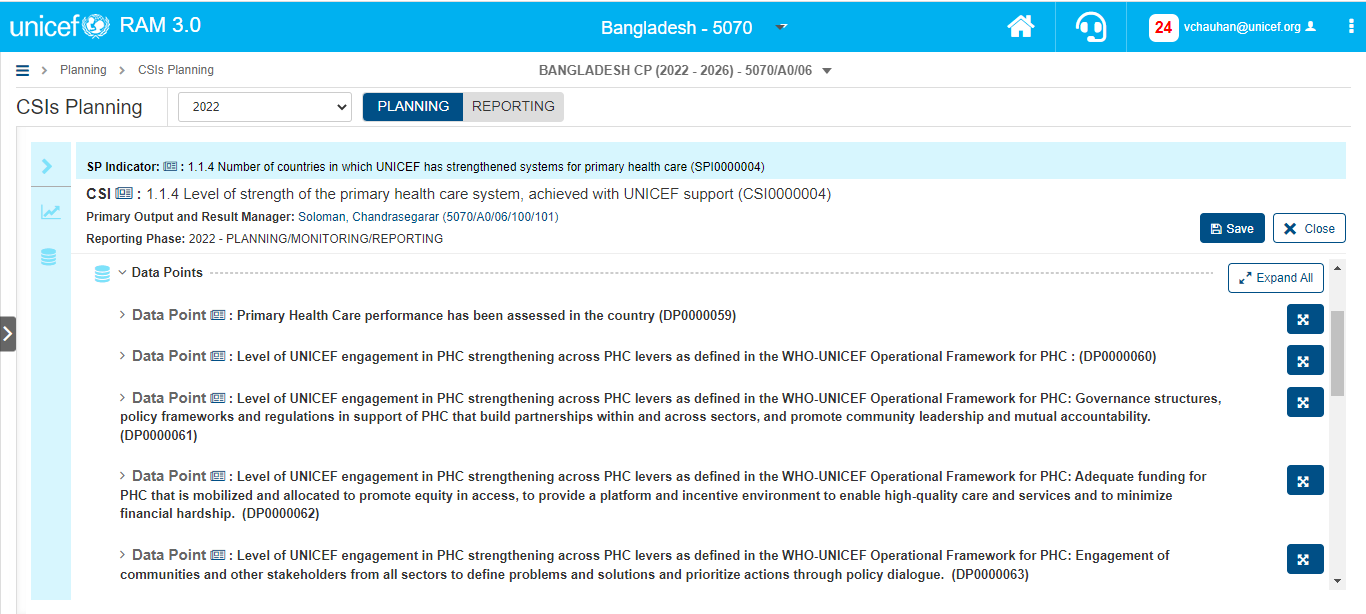|
Seth Davis, Programme Advisor, Community Systems Foundation Aditya Shankar, Programme Associate, Community Systems Foundation The initial segment of the series highlights the inception of DFA Monitoring and its adaptability to monitor global development plans and programmes. The earliest overall, and global, implementation of DFA Monitoring was with the UN Development Coordination Office (UNDCO) to better plan and monitor joint activities of all UN Country Teams around the world. This design and development process allowed CSF to create a highly generalized and configurable open source tool that would assist in filling a gap to ensure accurate and comprehensive reporting at national, regional and global levels of UN operations. UN INFO In 2018, DFA Monitoring was rolled out through an adaptation called UN INFO. Using the base code of DFA Monitoring, UN INFO quickly moved from pilot to wider implementation, creating a system that provided, for the first time ever, standardized and comprehensive data on consolidated UN contributions to the realization of sustainable development goals all around the world. Through an established process of establishing an overarching set of priorities, outcome and output for UN support to SDGs to the more granular planning of operations and financial resources, UN Country Teams, such as that in Turkmenistan, collaborated on setting, communicating and implementing programming to support national development priorities. Country plans and results achieved are made available through data dashboards showcasing progress in achieving the aims of the joint programme. A full list of countries that have these dashboards can be found here. The countries and territories shaded in yellow show how UN country teams are working on the Sustainable Development Goals (SDGs); which UN agencies, funds and programmes are working on which SDGs, where, source of funding, implementing partners and more. Source: UN INFO UN INFO enables UN Country Teams to clearly communicate commitments of support and status of planned activities, ensuring transparency and accountability to both donors and recipients of UN action. The system also reflects a trail of financial resources to the achievement of SDGs, linking resources provided by Contributing Partners to the target of support - in this case, the SDGs - and to the local partner designated to implement planned programmes. In Turkmenistan, for example, it is clear that the largest contributing partners provide the largest portion of financing to programming related to SDG 3, Good Health and Wellbeing. The majority of that funding is being utilized by the Ministry of Health to implement planned programmes. UN INFO allows users to follow the money and begin to analyse the impact of resources on the achievement of planned goals. The UNICEF Results Assessment Module (RAM) For the monitoring of internal and external programs, DFA Monitoring has been adapted by UNICEF to support annual reporting processes in all regional and country offices worldwide. The Results Assessment Module (RAM) at UNICEF allows for planning and reporting on development performance across the Agency. This effort has streamlined access to performance data and has enabled the digitization of the work planning process to support internal operations. The ultimate aim of RAM is to support UNICEF in successfully allocating resources for maximum efficiency and impact in their programmes around the world. DFA Monitoring is the engine that drives this analysis. With the latest update, CSF and UNICEF introduced Country Strategic Indicators (CSI), which replaces the Strategic Monitoring Questions (SMQ) module. CSI aim to reduce the overall reporting burden on UNICEF Country Offices, eliminate confusion and duplication with standard indicators, introduce automation and reduce process steps, and strengthen alignment between country programmes and UNICEF’s global strategic plan. CSI will also help to reduce the introduction of additional indicators. Conclusion Both UN INFO and UNICEF RAM highlight the vision of two complex, global organisations to deploy systems to strengthen collaboration, transparency and accountability in supporting international development. DFA Monitoring powered a global system, like the UN Info, to communicate commitments and track the progress in the work of the UN system.
In the case of the UN RAM Module, the system has been harnessed to meet specific work flows and processes of the agency, assisting in more efficient and effective resource allocation and oversight in programming.
0 Comments
Leave a Reply. |
Join the CSF data revolution webinar tomorrow!
COMMUNITY SYSTEMS FOUNDATION – EST 1963
+1 212 500 1335
data-driven sustainable development





